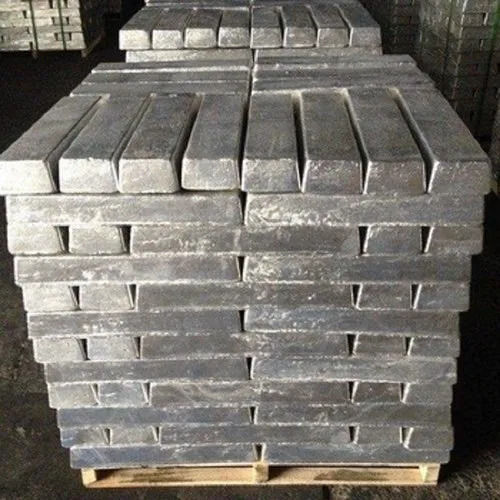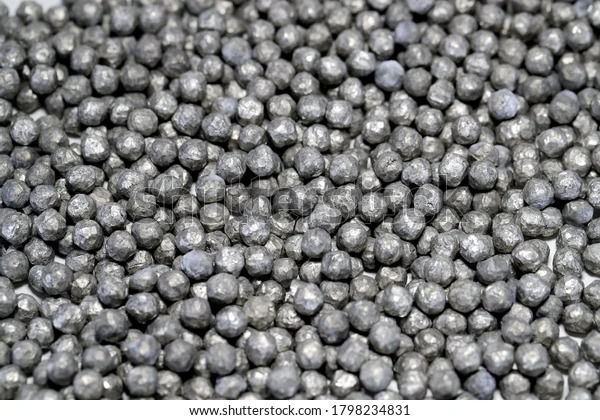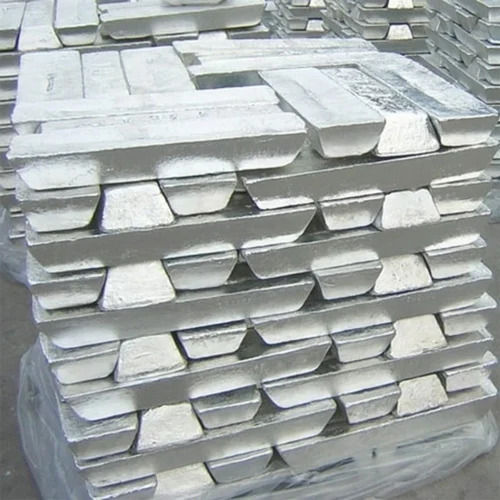Working hours : Mon - Sat : 10AM - 7PM
Magnesium Slab
260 INR/Kilograms
Product Details:
X
Magnesium Slab Price And Quantity
- 260 INR/Kilograms
- 1000 Long Ton
Magnesium Slab Trade Information
- Others
- 1000 Long Ton Per Day
- 1 Week
- Yes
- Contact us for information regarding our sample policy
Product Description
A magnesium slab is a sizeable, flat piece of metal primarily composed of the chemical element magnesium, denoted by the symbol Mg and atomic number 12 on the periodic table. With distinctive properties spanning chemical reactivity to physical attributes, magnesium occupies a pivotal role across industries and scientific domains.
Chemical Properties:
Magnesium, situated in Group 2 of the periodic table, belongs to the alkaline earth metal category. Hosting two valence electrons, it readily forms divalent cations, rendering it chemically active and conducive to bonding with other elements. This propensity for diverse chemical reactions positions magnesium as a crucial component in various chemical processes.
Physical Traits:
A standout feature of magnesium is its notably low density, approximately one-fourth that of steel. This property, coupled with inherent strength, designates magnesium as an optimal choice for applications necessitating lightweight yet durable materials. With a melting point of 650 degrees Celsius (1202 degrees Fahrenheit) and a boiling point of 1090 degrees Celsius (1994 degrees Fahrenheit), magnesium's physical attributes bolster its diverse applications.
Industrial Significance:
Magnesiums industrial applications are vast and diverse, owing to its unique properties. Foremost among these is the creation of lightweight alloys. Magnesium's unparalleled strength-to-weight ratio renders it indispensable in industries like aerospace, automotive, and sports equipment. By amalgamating magnesium with other metals such as aluminum, zinc, and manganese, engineers engineer potent, lightweight materials that enhance fuel efficiency and overall performance across various sectors.
In aerospace, magnesiums lightweight nature substantially reduces aircraft and spacecraft weight, translating to improved fuel efficiency, augmented payload capacity, and enhanced flight performance. Simultaneously, the automotive sector relies on magnesium alloys for manufacturing engine blocks, transmission cases, and structural components. The inclusion of magnesium facilitates weight reduction, thereby enhancing fuel economy and mitigating emissions.
Additionally, magnesium finds application in the electronics industry. It's employed in crafting casings for laptops, cellphones, cameras, and other portable devices. Magnesium's blend of lightweight construction and durability suits contemporary electronic device demands. Its commendable thermal conductivity also contributes to heat dissipation, critical for maintaining optimal operational temperatures in electronic components.
Chemical and Metallurgical Applications:
Magnesiums reactivity and affinity for oxygen have relevance in various chemical processes. Particularly, it plays a pivotal role in the steel industry. Magnesium's introduction to steel production eliminates sulfur and oxygen impurities during the refining process. Furthermore, it functions as a reducing agent in diverse reactions, aiding in the formation of specific chemical compounds.
Biological Significance:
Beyond industrial applications, magnesium holds a vital role in biological systems. It serves as an essential nutrient for human health, participating in numerous physiological processes. Magnesium acts as a cofactor for over 300 enzyme systems governing various biochemical reactions within the body. These encompass energy production, DNA synthesis, and muscle function. Maintaining adequate magnesium intake is imperative for robust bones, nerve function, and a steady heartbeat.
Health and Safety Considerations:
While magnesium is pivotal for human health, overexposure to its compounds can be hazardous. Inhaling magnesium dust or fumes, particularly from combustion, can irritate the respiratory system and lead to "metal fume fever." Additionally, specific forms of magnesium can induce skin irritation or allergies upon contact.
Environmental Impact:
Magnesium extraction from ores can have ecological ramifications, including habitat disruption and substantial energy consumption. Proper disposal of magnesium scrap and waste is crucial to prevent adverse effects on ecosystems.
In summary, a magnesium slab transcends its status as mere metal, encapsulating the extraordinary attributes of magnesium as a lightweight, robust, and reactive element. Its contributions span industries from aerospace and automotive to electronics and metallurgy, underscoring its versatility and indispensability. As we continue exploring innovative applications and prioritize sustainability, magnesium's role in shaping technology and enhancing human well-being remains resolute.
Tell us about your requirement

Price:
Quantity
Select Unit
- 50
- 100
- 200
- 250
- 500
- 1000+
Additional detail
Mobile number
Email
Other Products in 'metal product' category
"We are dealing only in Bulk Order Quantity"
Just submit your contact details and well be in touch shortly.
Back to top








